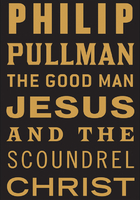HOW DO YOU BECOME AN IDEAIST?
1.
YOU HELP PEOPLE THINK BETTER OF THEMSELVES
There are three reasons why it's vital for you to help people think better of themselves.
First, what people think about themselves is the single most important factor in their success.
Their personalities, their actions, how they get along with others, how they perform at work, their feelings, their beliefs, their dedication, their aspirations, even their talents and abilities are controlled by their self-images.
People act like the kind of persons they imagine themselves to be.
If they think of themselves as failures, they will probably become failures.
If they think of themselves as successful, they will probably become successful.
More to the point: If they think of themselves as creative, as fonts of ideas, they will probably become creative, they will probably become fonts of ideas.
"They can do it all because they think they can," said Virgil, and this fundamental fact about the triumph of self-image is as true today in business as it was two thousand years ago in Greece.
"Success or failure in business," wrote Walter Dill Scott, "is caused more by mental attitudes than by mental capabilities."
In other words, attitude is more important than facts.
The difference between people who crackle with ideas and those who don't has little to do with some innate ability to come up with ideas. It has to do with the belief that they can come up with ideas.
Those who believe they can, can; those who believe they can't, can't.
It's as simple as that. And it's no longer open to question.
If you doubt it, just ask yourself why so many seemingly gifted people fail, and why so many seemingly impoverished people succeed.
It's not because of who they are. It's because of who they think they are.
Second, what William James called "the greatest discovery of my generation" is also a fact. The discovery?
"Human beings can alter their lives by altering their attitudes."
Or as Jean Paul Sartre put it: "Man is nothing else but what he makes of himself."
This too is no longer open to question.
And yet this is what many leaders refuse to accept. And as long as they refuse to accept it, they will never become ideaists.
They accept that people's self-images drive their lives but — despite all the evidence cited by parents, by clergymen, by doctors, by philosophers, by psychologists, by teachers, by therapists, and by the hundreds of self-improvement books — they reject the notion that those same people can change their self-images.
They accept "As a man thinketh in his heart, so is he." But they seem to think that if a man thinketh differently in his heart he will remain the same man.
He won't. He will be a different man.
Or they seem to think that a man can't think differently in his heart, that the way he thinks today is locked in stone forever.
They are wrong. He can think differently.
Everybody accepts now that the mind can alter how the body works. The evidence that it can and does is simply overwhelming.
Drug addicts take placebos and have no withdrawal symptoms, allergy sufferers sneeze at plastic flowers, unloved children physically stop growing, hypnotized patients undergo surgery without anesthesia, people lower their blood pressures and heart rates by willing it, cancer victims experience spontaneous remissions, hopeless cripples walk away from Lourdes cured — the examples are legion.
But accepting the concept that the mind can alter the body is a huge leap, a major leap, perhaps even a quantum leap.
All I'm asking you to accept is a minor leap — that the mind can alter the mind.
Indeed, if you are to become an ideaist, you must accept that the people you work with can and must change.
Otherwise, you are doomed to lead a stagnant, never-improving company, a company that will probably end up where it began — at the bottom.
Third, because of your position as an ideaist, you can help the people you work with alter their attitudes.
Indeed, that is your primary job —
to help people think better of themselves,
to help them raise their self-images.
And you do it, not by commanding, but by restoring; not by directing, but by unleashing; not by leading, but by ideaizing.
Let me tell you a story:
I once worked at Foote, Cone & Belding in Los Angeles as a copywriter. Working with me was another copywriter named Glenn. He was an older guy who was a sweetheart of a person, and — when he put his mind to it — a brilliant writer. The problem was that Glenn had lost it — he drank a lot and didn't do much. And when he did do something, his ideas for ads were hopelessly old-fashioned, his copy rambling and disjointed.
I left that agency about the time that John O'Toole, the legendary ad man, arrived as creative director. Two years later, John was promoted to creative director of Foote, Cone in Chicago, and I returned and took over his job in Los Angeles — only to learn that Glenn was still there. But, to my surprise, it was the brilliant Glenn, not the lost one. From my first day as creative director, he was great — coming up with good ideas, writing well, not drinking.
I phoned John and asked him what happened.
"Well, I knew Glenn was a fine writer," he said. "He'd just lost his confidence, that's all. So I told him I thought that he was the best writer I knew and asked him if he would please edit the things I wrote. Every ad, every presentation, every memo, every proposal, every letter, I showed to Glenn first and asked for his help in making them better. It only took about a month before he was back to his old self."
John had restored. John had unleashed. John had ideaized.
Once you accept that as the ideaist's role, it colors everything you do — who you hire, the kind of environment you create, the directions you give, the way you give directions, how you set up your company, your systems, your procedures, how you deal with people, your training programs, what kind of clients and customers you attract, your goals, what you produce, the kind of service you give, everything.
For your company is only a vehicle for you to achieve your goals.
After all, it cannot have any goals of its own — it is only a reflection of you and the other people who set it up and run it. Its goals are your goals.
And as soon as you accept that your primary goal is to help people think better of themselves — to inspire and unleash and restore — you must accept that the primary goal of your company cannot be to make more money or better products, or to produce better work, or to deliver better service.
Its primary goal must be your primary goal — to help people think better of themselves, and to provide the kind of environment in which inspiring and unleashing and restoring can flourish.
If creating that kind of environment is the primary goal, then the other more traditional goals — like delivering better service, like making more money and better products — will come naturally, for when you achieve this goal, the people you work with will provide more and better service, and will produce more and better ideas and work; and they will do it faster and more efficiently.
But, you ask, specifically what kind of environment do you create?
2.
YOU HELP CREATE AN ENVIRONMENT THAT'S FUN
If you are to make people think better of themselves, the environment must be friendly instead of hostile, open instead of closed, supportive instead of discouraging, relaxed instead of rigid, inclusive instead of divisive — all the things that all the books on leadership and empowerment espouse.
But it must be more than that.
If you want ideas to flourish, it must be fun.
"Make it fun to work at your agency," wrote David Ogilvy. "When people aren't having any fun, they seldom produce good advertising. Kill grimness with laughter. Encourage exuberance."
Mr. Ogilvy did not have to limit his remarks to advertising agencies and advertising. The same could be said about any kind of business producing any kind of product or service. For you know it's true:
People who have fun doing what they're doing, do it better.
"The number one premise in business is that it need not be boring or dull," said Thomas J. Peters. "It ought to be fun. If it's not fun, you're wasting your life."
Note that neither Ogilvy nor Peters had any doubt about which is the more important — good work or fun. The fun comes first.
"If you ask me what is our primary purpose," said Ogilvy, "I would say that it is not to make the maximum profit for our shareholders, but to run our agency in such a way that our employees are happy. Everything follows from that — good work, and good service to clients."
My experience tells me what Ogilvy's experience told him — people do good work because they're happy, because they're having fun, not vice versa.
Granted, they have a sense of accomplishment, and they feel pleased and fulfilled when they do good work; but — at least among the writers and art directors in the advertising agencies I worked in — those feelings do not seem to carry over to the next job, or to the next.
Fun does.
Fun, like enthusiasm, is contagious and has a snowball effect that helps generate good work over and over again throughout the organization.
This was proven to me early in my career.
When I started in advertising, the writers and art directors dressed the way everybody in business dressed — the men wore suits and ties; the women, dresses or suits.
In the late 60's all that changed. People started dressing in sweaters and blue jeans and T-shirts and tennis shoes. I was running a creative department then, and the Los Angeles Times asked me what I thought about people coming to work like that.
"I don't care if they come to work in their pajamas," I said, "as long as they get the work out."
Sure enough, the day after the article (with my quote) appeared, my entire department showed up in pajamas. It was great fun. The office rocked with laughter and joy.
More important, that day and the weeks that followed were some of the most productive times my department ever had. People were having fun, and the work got better.
Note again the cause and effect relationship: The fun came first; the better work, second. Having fun unleashes creativity. It is one of the seeds you plant to get ideas.
Indeed, nothing is more important for an ideaist to do than to create this kind of an environment, an environment where people enjoy coming to work everyday, where there's a feeling of camaraderie and good fellowship, where people attack their work with alacrity and confidence, where they like the people they work with, where they think of themselves as partners instead of employees, where — in short — it's fun to work.
When this happens, the work ceases to be a drag and takes on an effortless, easy-flowing, natural, Zen-like quality that results in more solutions, fresher solutions, better solutions, easier and faster.
The authors of 301 Ways to Have Fun at Work agree. Dave Hemsath and Leslie Yerkes wrote, "We believe that fun at work may be the single most important trait of a highly effective and successful organization; we see a direct link between fun at work and employee creativity, productivity, morale, satisfaction, and retention, as well as customer service and many other factors that determine business success."
So too does the philosopher Alan Watts: "Don't make a distinction between work and play," he wrote, "and don't imagine for one minute that you've got to be serious about it."
What follows are some suggestions on how to help the people you work with believe in themselves, and how to create the kind of environment that encourages that kind of belief — suggestions, in short, on how to get them to come up with more and better ideas.
If any of the suggestions don't make sense to you or don't set well with you, disregard them.
Be your own kind of ideaist, not someone else's. Follow your own gut feelings, not someone else's.
Here's why:
First, if you don't feel good doing something — if it isn't easy and natural for you — you probably won't do it well. And if you don't do it well, it probably won't work, no matter how "right" it is.
Second, when you do something someone else's way and you succeed, you never know if you also would have succeeded doing it your way. And if you fail, you never know either. It is a lose-lose situation.
On the other hand, when you do it your way and you succeed or fail, it is a win-win situation, for you know that it was because of you, not someone else, that you succeeded or failed.













